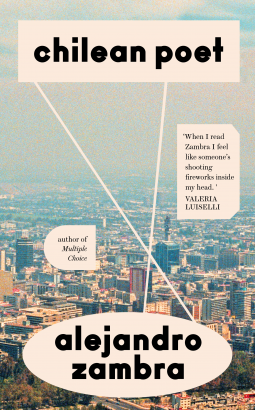More on this book
Community
Kindle Notes & Highlights
People say that’s what happiness is – when you don’t feel like you should be somewhere else, or someone else. A different person. Someone younger, older. Someone better.
Of course Vicente is afraid of failure, that’s precisely why he is resisting being herded along with the rest of the cattle. To fail, for him, would be to suddenly wake up in the middle of an insipid existence, doomed to serve out a life sentence in a miserable job.
Maybe that exists: the smile of a person who has just acquired a certain amount of power and is willing to share it.
The exercise of poetry doesn’t pay, but it does notably prolong youth.
There’s a collective of poets who organize ‘poem bombings’ over places scarred by political violence: they throw thousands of bookmarks with poems on them out of a helicopter. They did it in Dubrovnik, Guernica, Warsaw, and Berlin, among other places, and of course they did it first in Santiago, over La Moneda, where Allende died the day of the coup. It’s a beautiful, exuberant, meaningful project. The problem is that these same poets also organized a contest to get women to send them photos of their asses. For real.
‘A lot of people say that poetry is useless.’ ‘They’re afraid of useless things. Everything has to have a purpose. They hate pure creation, they’re in love with corporations. They’re afraid of solitude. They don’t know how to be alone.’
Every morning, over her first coffee, Javiera reads a poem by someone else ten times, trying to memorize it. Then she has breakfast with her daughter – the two of them live in a small house on Cerro Miraflores – and drops her off at school, and her day is spent working precarious, badly paid jobs. That’s until eleven at night, when the poet sits down at the dining room table and writes the poem she read in the morning just as she remembers it. The degree of the divergence varies a lot, but it’s always there. The idea is to recall the poem many times over the course of the day, and for life, so
...more
the world of Chilean poets is a little stupid but it’s still more genuine, less false than the ordinary lives of people who follow the rules and keep their heads down. Of course there is opportunism and cruelty, but also real passion and heroism and allegiance to dreams. She thinks that Chilean poets are stray dogs and stray dogs are Chilean poets and that she herself is a Chilean poet, poking her snout into the trash cans of an unknown city – she likes to think of herself as a Chilean poet, a Chilean poet who is neither poet nor Chilean, but whose journalistic pilgrimage in search of a break,
...more
She tells him that Chilean poetry seems like an immense family, with great-grandparents and second cousins, with people who live in a gigantic palafito that sometimes floats between the islands of an archipelago, and there are so many people inside that it should sink, but, miraculously, it doesn’t.
He pages through the final chapters of Ulysses, which he’d read anxiously, erratically, back when he still lived with his parents, and he thinks that at some point he should reread that novel honestly, with a real willingness to play the game. He opens a copy of A Confederacy of Dunces, and as he reads the first five pages he recovers the laughter and sense of complicity and he even feels hungry thinking of the pizza and garlic bread he used to eat in his minuscule apartment in the days when he read that novel, not long before his reunion with Carla. He reads the back cover of To the
...more


